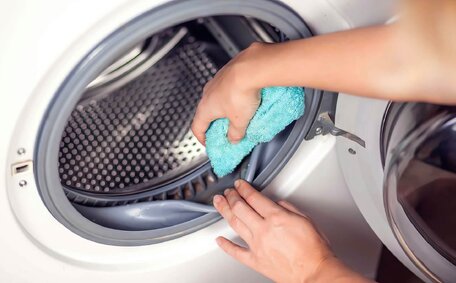Introduction to Natural Gas and Propane
Both natural gas and propane are prominent fuel sources for homes and businesses, yet they have distinct characteristics that consumers need to understand.
This comparison of natural gas and propane will examine their chemical composition, energy efficiency, cost, environmental impact, storage, and delivery.
By the end, you’ll have a solid grasp of how they compare for domestic and commercial applications so you can determine which fuel type makes the most sense for your particular needs.
The following sections detail the distinctive traits of natural gas and propane, from their origins to their heat generation, and examine how their properties influence their use in heating, cooking, and vehicle fueling.
Whether you currently use one type or the other, or have a choice in fuel selection, this guide aims to give you the knowledge to make a well-informed decision.
Chemical Composition
Natural gas and propane share similarities in chemical makeup yet possess critical differences.
Natural gas is primarily composed of methane, which is a molecule made up of one carbon atom bound to four hydrogen atoms (CH4). The remaining composition includes other hydrocarbons like ethane, butane, and pentane, as well as trace amounts of nitrogen, carbon dioxide, oxygen, and hydrogen sulphide.
Typically, methane constitutes 70-90% of natural gas.
In its raw state, natural gas is colourless, odourless, and lighter than air. The distinct rotten egg smell, introduced for safety via the added odorant mercaptan, facilitates leak detection.
Propane is a liquid fuel stored under pressure. Its chemical composition is C3H8, meaning each molecule contains 3 carbon atoms bound to 8 hydrogen atoms. Under standard temperature and pressure, propane vaporises into a gas for combustion uses.
Unlike natural gas, propane is naturally colourless and odourless in both liquid and gas forms. Odorants like ethyl mercaptan are added for leak detection. Propane also has a higher energy density than natural gas, producing about 2.5 times more BTUs per cubic foot.
In summary, while both fuels are composed of hydrocarbons, natural gas cng has higher methane content as a gas, while propane is a liquid that’s pressurised and vaporised for use. These molecular differences impact their storage, transport, energy efficiency and other characteristics.
Energy Efficiency
An essential measure to compare the energy efficiency of natural gas versus propane is the British Thermal Units (BTUs) per cubic foot, which quantify the fuel’s energy content.
Natural gas provides approximately 1,000 BTUs per cubic foot, while propane offers a significantly higher energy density at about 2,500 BTUs per cubic foot, yielding roughly 2.5 times the BTUs from the same fuel volume.
Due to its higher BTU output, propane requires a smaller volume to achieve the same energy release, approximately 40,000 BTUs from around one cubic foot compared to natural gas.
However, while natural gas appliances are designed specifically for natural gas, propane appliances are designed for optimum propane combustion. So while propane has a higher energy content per volume, when the right appliances are used for each fuel, their overall energy efficiency differences for the end consumer are minimised.
Evaluating factors like cost per BTU and fuel availability, including regional access to compressed natural gas cng, is critical when considering energy efficiency differences. Although propane delivers more BTUs, it generally costs more per BTU than natural gas.
In summary, propane holds more potential energy than natural gas in the same volume, but energy output depends on proper appliance fit and fuel cost. Consider all factors including BTU content, equipment, and pricing when choosing the more efficient gas for your needs.
Cost Comparison
When considering the costs of natural gas versus propane, there are a few key factors to weigh:
Fuel cost: On a pure BTU-to-BTU basis, propane typically costs more than natural gas. However, propane’s higher BTU density means you may use less of it, impacting the overall cost. Market fluctuations also affect pricing.
Infrastructure: Accessing natural gas requires connection to gas pipelines. This may mean added infrastructure costs for installation. Propane gas requires storage tanks which entail upfront costs.
Appliances: Natural gas appliances differ from propane, so switching fuels means replacing appliances. This can be expensive.
Maintenance: Natural gas lines typically require less maintenance than propane tanks which need periodic refilling/inspections.
Convenience: Natural gas hookups provide continuous access. Propane requires monitoring tank fuel levels and arranging delivery.
Natural gas typically incurs lower costs for residential uses, whereas propane provides flexibility in areas without pipeline infrastructure. A comprehensive evaluation of both short and long-term costs aids in selecting the most economical fuel.
Environmental Impact
When evaluating the environmental impact of natural gas versus propane, there are some key differences to consider.
Natural gas: Predominantly methane, natural gas is a significant greenhouse gas contributor.
Both natural gas and propane burn cleaner than crude oil and coal, with natural gas emitting roughly 50% less carbon dioxide during combustion.
Propane: Exhibiting minimal reactive hydrocarbon emissions such as propene and butane during combustion, propane is non-toxic and when leaked, quickly disperses, reducing environmental harm. As a liquid fuel, it also circumvents the methane leaks typical in natural gas pipeline delivery.
In summary, while both are fossil fuels and thus gas nonrenewable, propane edges out natural gas when it comes to ecological friendliness due to lower emissions and pollution.
However, some studies show a difference between natural gas burner systems can achieve lower overall greenhouse gas emissions despite methane leaks. Evaluating the complete life cycles of each fuel is important to determine true environmental impacts.
When choosing between these two hydrocarbon fuels, considerations like energy efficiency, cost, and availability may take priority for many consumers. But understanding the environmental pros and cons can help guide choices towards more sustainable options where possible.
Storage and Delivery
When it comes to storage and delivery methods, natural gas and propane differ significantly:
Natural Gas Storage and Delivery:
- Transported through underground pipelines from gas wells to homes and businesses
- Involves an extensive network of pipelines and compressor stations for transport.
- Service provided continuously via existing gas lines
- Utility companies monitor and maintain pipeline network
Propane Storage and Delivery:
- Stored on-site in pressurised tanks as liquid fuel
- Propane tanks vary from portable models to sizeable permanent installations.
- Users need to schedule deliveries to replenish their propane tanks.
- Propane’s flexibility lies in the convenient placement of tanks, without the need for pipelines.
- Propane suppliers handle the tanks and fittings’ maintenance.
In summary, natural gas relies on an interconnected pipeline network to provide continuous service. Propane offers more flexibility with on-site storage tanks that can be situated as needed. This makes propane a good choice for rural or off-grid locations without existing gas line infrastructure.
Considering delivery method and site access are key factors when choosing between the convenience of natural gas lines or the flexibility of propane tank storage and replenishment.
Safety Considerations
- Natural gas can be odorized so leaks can be detected quickly. If a rotten egg smell is present, it’s critical to leave area immediately and contact the gas company or emergency services.
- Make sure all gas appliances are installed properly by qualified professionals and have yearly checkups.
- Keep the emergency gas company number handy. Never try to locate a leak yourself.
- Consider installing gas detectors for added warning of leaks.
- Teach your family to recognise the smell of natural gas and when to leave areas immediately.
Propane Safety:
- Check your propane tanks and connections regularly for leaks. Order repairs by certified propane technicians as needed.
- Keep propane tanks outdoors and away from heat sources, enclosed spaces, or openings to occupied spaces.
- Familiarise yourself with the characteristic skunk odour added to propane to help detect leaks quickly.
- Always turn off your propane tank when not in use. Install valves on lines from tanks to appliances for easy shutdown.
- Keep the area around propane tanks clear of debris, vegetation, and other flammable materials.
In summary, exercising caution with natural gas and propane is essential. Monitor for leaks, uphold proper installation and maintenance, act quickly in case of emergencies, and adhere to safety guidelines for responsible use.





